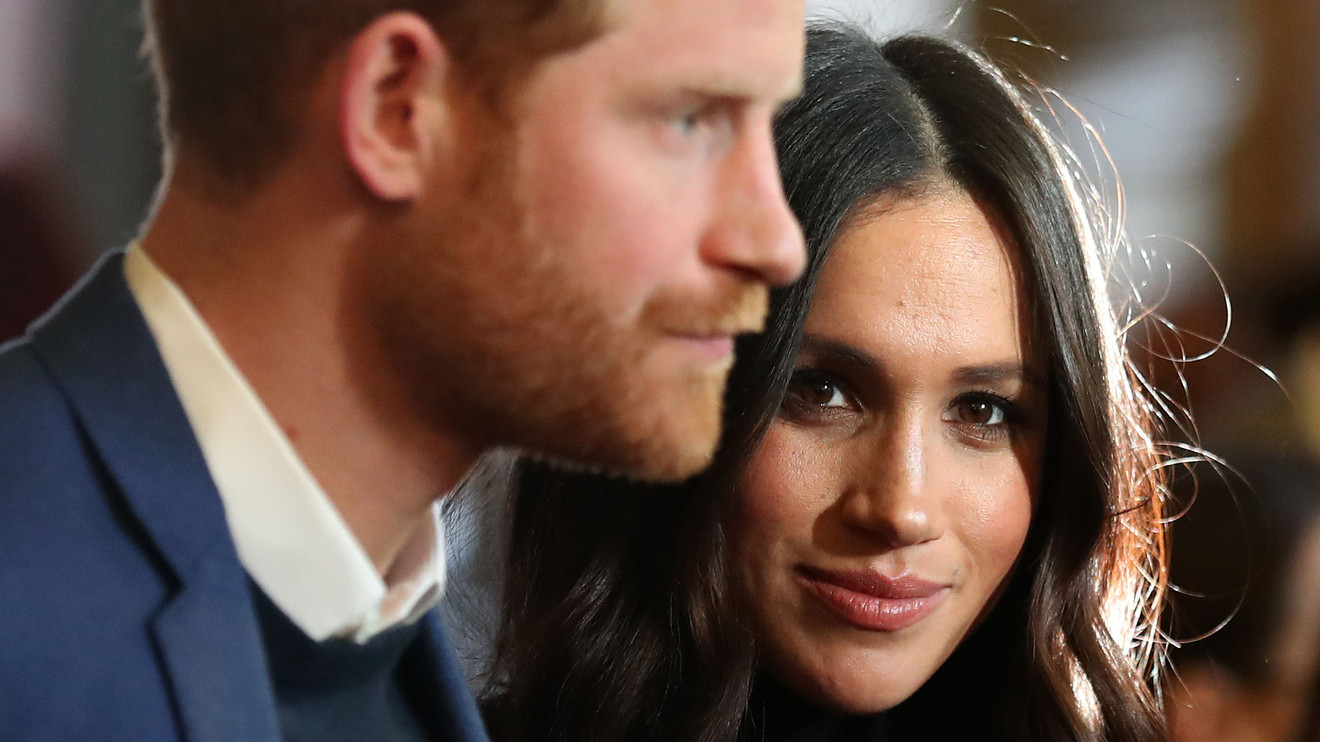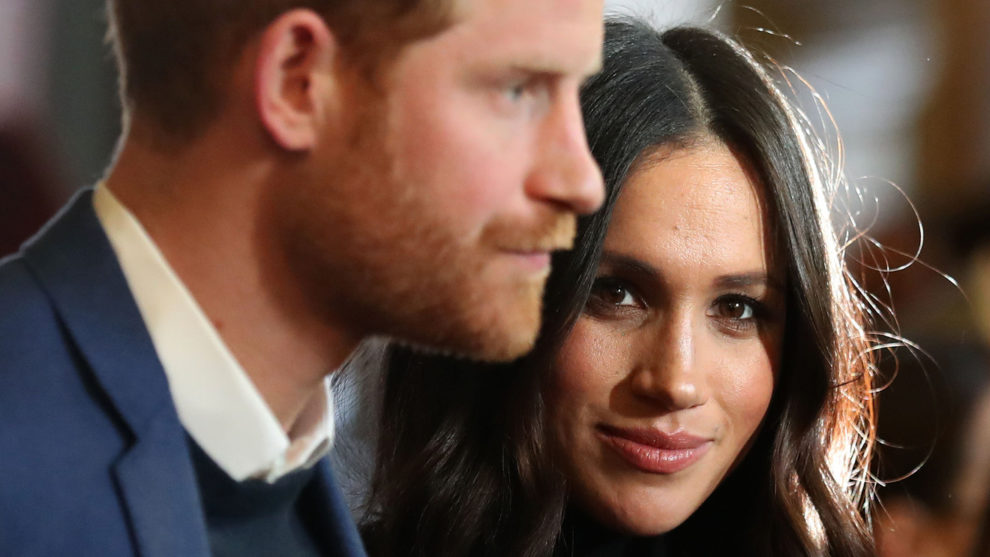
The Sussexes have the all-clear to move to North America — and experts say they’re wise to choose Canada over the U.S.
Prince Harry’s grandmother Queen Elizabeth II, the head of state of the Commonwealth and effectively CEO of the family business, gave him and his wife, Meghan Markle, her public blessing on their likely partial move to Canada.
Experts have generally agreed that the couple will have ample opportunities to cash in on their celebrity status once they are independent of the royal family and have a base in North America.
The queen confirmed that she would have preferred the couple continue in the family business as “working members of the royal family.” She confirmed that, after a period of transition, they would no longer be reliant on public funds.
The statement followed a “Sandringham summit” of senior royal family members and advisers at the Queen’s country estate. Meghan Markle did not attend in person, but reportedly planned to join the summit by phone from Vancouver. Prince Philip left the house before the meeting, and Prince William reportedly turned up with just 15 minutes to spare.
Experts have generally agreed that the couple will have ample opportunities to cash in on their celebrity status once they are independent from the royal family and have a base in North America.
They have already trademarked the label “Sussex Royal,” raising speculation that ranges of branded tea towels, kitchenware and other consumer goods may soon appear in Nordstrom JWN, +0.20%, Macy’s M, +0.63% or Marshall’s TJX, +1.63%.
There are significant tax advantages to living in Canada
The couple appear to be moving to Canada rather than the United States. Observers note several key financial advantages, including that moving to Canada will keep Prince Harry out of the complex web of U.S. international tax law.
The U.S., almost uniquely among countries, taxes citizens and other “U.S. persons” worldwide, even if they move abroad and never return. If Harry became a resident in the U.S., he would become subject to U.S. tax law, potentially raising a situation in which the Internal Revenue Service started sending notices to Buckingham Palace demanding that British royal trusts file accounts and pay U.S. taxes.
Meghan and Harry may have a lot of taxable income, as they could be hoping to follow in the footsteps of Oprah Winfrey, Martha Stewart and the Kardashians. Martha Stewart sold her branded goods company for $350 million in 2015, though she was once reportedly worth more than $1 billion. More recently, Kylie Jenner has launched a cosmetics business that has reportedly already made her a billionaire.
Canada makes more sense from a security point of view
Canada is a member of the British Commonwealth, and the Queen is head of state, so the couple may be able to draw on the Canadian state for help with security. When the Sussexes spent six weeks in Canada over the holidays, Scotland Yard provided protection with support from the Canadian police.
But they will face an easier time arranging security at the cost of the state in Canada than the U.S. “The Governor General, who represents the Queen in Canada, is protected by the Royal Canadian Mounted Police and as a prince of the realm of Canada, Harry and his family will be protected by the same team of guards, which will have to be expanded,” according to the London Evening Standard.
“Royal Protection by armed Metropolitan Police officers is mandated by the Home Office,” it added. “Until now their official roles mean the Duke and Duchess and their son are classified as internationally protected people.”
One problem for the pair is that Brexit has left the British pound very weak on international exchanges. As a result, Harry’s royal fortune — inherited from his mother, the late Princess Diana, and great-grandmother — will go a lot less far on this side of the pond than it would have a few years ago. The pound is about 20% below the peaks seen before the 2016 Brexit referendum.
“It’s a smarter move than moving to the U.S.,” said attorney David Lesperance, who helps high-net worth individuals and families from all countries navigate immigration and taxation issues when they move across borders.
Lesperance, founder and managing partner of Lesperance & Associates, is a Canadian citizen but lives in Gdansk, Poland. A number of his clients, like wealthy Brazilians, Mexicans and Europeans, consider Canada a wise destination for tax purposes. They are close enough to America for travel, without involving themselves in the country’s tax code.
Lesperance noted Canada does not impose a capital gains tax for homes that increase in value, so long as the place is a person or family’s main residence. If Meghan and Harry bought a palatial estate that soared in value, perhaps because of who they are, or the renovations they applied, the couple could pocket the entire profit minus brokers’ fees.
In the U.S., the Internal Revenue Service only allows a married couple to exclude the first $500,000 in capital gains on the sale of a main home; however, homeowners can also deduct mortgage interest on their taxes every year, but Canadians have no such write off, Lesperance added.
Divorce law is less complicated in Canada than the U.K. or U.S.
But what will happen to all of that earned wealth in the event of a split? It seems highly unlikely in 2020, but how about years or even decades from now? Canadian divorce law generally splits all new marital wealth equally. That’s good news if the couple manages to cash in on their celebrity status, even if their adventure ultimately ends in tears.
Meanwhile, Canadian family-law experts confirm that if the couple were ever to separate, Harry would be entitled under Canadian law to half of any new wealth they’d built up during their marriage. “Essentially…any form of property that’s built up during the relationship would be divided 50/50,” says Sophie Bartholomew, family attorney at the Vancouver-based law firm Maclean Law.
This applies both to assets acquired during the marriage, and to increases in asset values that took place during the marriage, says Denise Whitehead, a professor of family and legal studies at Canada’s University of Waterloo. (There are wrinkles to account for “excluded” assets, typically the money each party brought into a marriage, and to reflect matters like debts, she adds.)
In the event of a divorce, neither Harry nor Meghan could claim the assets that the other party brought into the marriage, say experts. But all the money from, say, the “Sussex Royal Collection at J.C. Penney JCP, +9.62% ”? They would split those 50/50. (In the U.S., divorce law depends on which state couples file for divorce.)
And in the U.K.? “The law surrounding the division of matrimonial property and assets is lengthy and complicated,” according to Bennett Oakley Solicitors. “Unfortunately, the law is far from clear on what constitutes matrimonial property.”
“If the marriage has lasted for many years it is likely that any property acquired prior to the marriage will be considered part of the matrimonial pot,” the company adds. “However, if the marriage was one of short duration, fewer than five years, then it is less likely that one party to the marriage can make a claim on the extra-marital property of the other party.”
(Andrew Keshner contributed to this story.)








